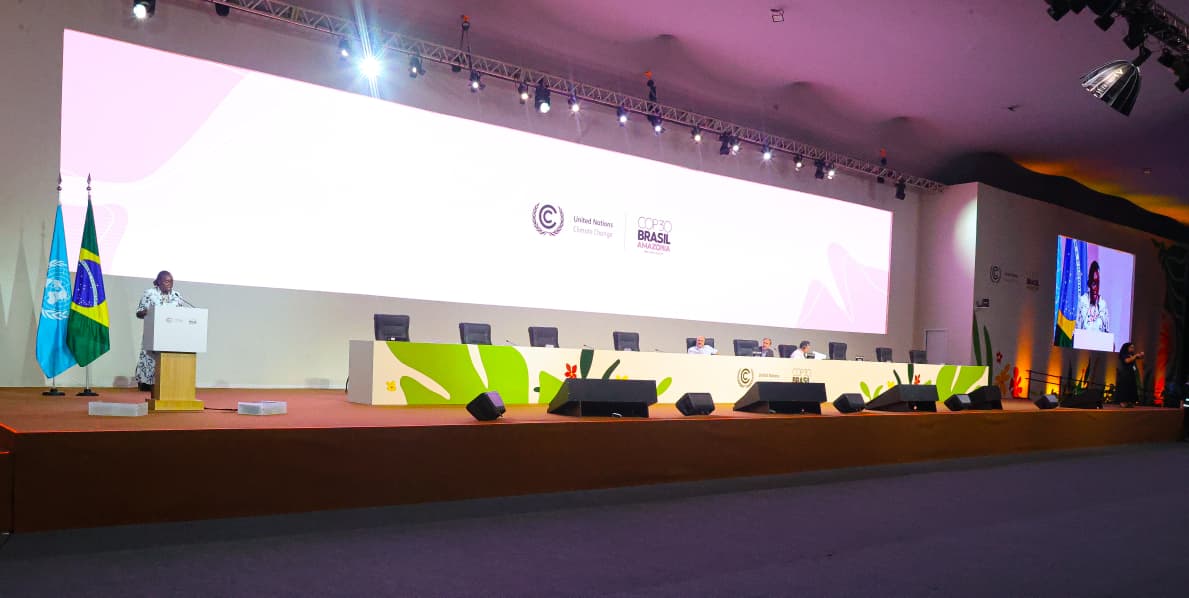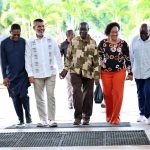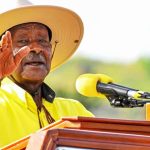Kenya’s Cabinet Secretary for Environment, Climate Change and Forestry, Dr. Deborah Mulongo Barasa, delivered a stark message at the opening of the 30th Conference of the Parties (COP30) to the United Nations Framework Convention on Climate Change (UNFCCC) High-Level Segment, cautioning that Africa is already living through the full force of the climate emergency.
 Speaking to world leaders in Belém, Brazil, she used Kenya’s national statement to underscore the widening gap between global commitments and the realities facing vulnerable nations.
Speaking to world leaders in Belém, Brazil, she used Kenya’s national statement to underscore the widening gap between global commitments and the realities facing vulnerable nations.
The Cabinet Secretary began by drawing attention to the symbolism of Belém, a city anchored in the Amazon rainforest. She told delegates that the Amazon, often referred to as “the great lung of our planet”, served as a living reminder of what is at risk if countries fail to act.
“We gather here in Belém, a city that stands as a living symbol of what humanity risks losing and what we must fight to protect. The Amazon, the great lung of our planet, surrounds us not as a comforting backdrop but as a reminder that our time to act is running dangerously short.” she reminded the world.
She stated plainly that “Africa arrived at COP30 with clarity and with urgency,” emphasising that the continent contributes the least to global emissions yet experiences some of the harshest consequences.
The impacts, Barasa stressed, are not distant threats but “the lived reality of a continent already in the eye of the storm.” She reiterated Africa’s longstanding demand for formal recognition of its special needs and special circumstances, arguing that this recognition is essential for decisions that reflect on-the-ground conditions and guide the support required through the Means of Implementation.
Turning to the Global Goal on Adaptation, Barasa highlighted the significance of ongoing negotiations. She insisted that the goal must evolve into a functional framework with measurable indicators covering the full range of adaptation needs: resilient infrastructure, food systems, ecosystem protection, health, gender equality, and the inclusion of marginalised populations.
She warned that adaptation must no longer remain “the poor cousin of climate action, underfunded, vaguely defined, and perpetually delayed.” Developing countries, including the least developed countries (LDCs), have called for a tripling of adaptation finance, a position Africa supports fully. Barasa emphasised the need for predictable, grant-based resources that do not exacerbate Africa’s debt burdens.
Climate finance, she told delegates, continues to be the defining test of global solidarity. She invoked the USD 1.3 trillion annual target agreed at COP29 in Baku and urged countries to convert that promise into tangible support through the Baku-to-Belém roadmap. On loss and damage, she was unequivocal: communities ravaged by climate disasters “cannot rebuild on promises.”
Barasa also underscored Africa’s commitment to transformation, stressing the centrality of technology in achieving a low-carbon, climate-resilient future. She called for strengthened technology transfer, investment in regional innovation hubs, and the removal of intellectual-property barriers that limit Africa’s ability to produce its own solutions. “Africa cannot remain a consumer of imported solutions,” she said.
She further supported the establishment of an African Just Transition Technical Assistance Network, warning against unilateral trade measures that could undermine African economies or restrict access to emerging green markets.
In closing, Barasa said, “Let us be clear: climate justice is incomplete without gender justice. Women across Africa bear the heaviest burdens of climate change, from food insecurity to water scarcity, from caregiving responsibilities to economic disruption.”
She backed an enhanced Gender Action Plan that incorporates gender responsiveness across all decisions and addresses structural inequalities that have historically marginalised women and girls . With her clear, uncompromising message, Barasa left no doubt: Africa is already facing the storm, and the world must respond accordingly.






